28 Mental Health Games, Activities & Worksheets (& PDF)
 Mental health is an important thing to talk about, but it can sometimes feel very uncomfortable.
Mental health is an important thing to talk about, but it can sometimes feel very uncomfortable.
Despite this, increasing mental health awareness is crucial as it can have many positive outcomes.
For example, one study examining a British anti-stigma campaign found that people who were more familiar with the campaign were more likely to feel comfortable disclosing mental health issues to family, friends, or an employer, and were also more likely to seek professional help (Henderson et al., 2017).
Fortunately, there are all sorts of ways to learn about mental health issues, whether one is an introvert, an extrovert, or somewhere in between.
This article will cover tools that can supplement mental health interventions, worksheets and activities that help people learn about mental health, books dealing with mental health for adults and children, Facebook groups for mental health issues, and finally World Mental Health Day activities and events.
Before you read on, we thought you might like to download our three Positive Psychology Exercises for free. These science-based exercises will explore fundamental aspects of positive psychology including strengths, values and self-compassion and will give you the tools to enhance the mental health of your clients, students or employees.
This Article Contains:
- 5 Tools for Mental Health Interventions
- 5 Mental Health Worksheets & Awareness Activities (PDF)
- 5 Most Popular Books About Mental Health
- 5 Most Popular Children’s Books About Mental Health
- Facebook Groups for Mental Health
- World Mental Health Day Ideas for Schools and Workplaces
- A Take-Home Message
- References
5 Tools for Mental Health Interventions
Here are some tools that will help a psychotherapy treatment plan go more smoothly for both the client and the clinician:
1. Thought Record Worksheet
This PDF is a way to record one’s thoughts and reflect on them. It asks the user to log their emotions and thoughts as well as what was going on to make them feel that way, then has the user reflect on whether or not there is evidence to back up their automatic thoughts. This could be a valuable supplement to a psychotherapist-led CBT treatment, but could also help people teach themselves about CBT.
In fact, one study has shown that thought records are an effective way to modify beliefs, even when used by themselves and not in conjunction with a CBT treatment plan (McManus et al., 2012). Find the Thought Record Worksheet here.
2. The Feeling Wheel
The Feeling Wheel is a simple printout with 72 feelings sorted into 6 groups: angry, sad, scared, joyful, peaceful, and powerful. Represented as a colorful pie, it can be an excellent tool for psychotherapy clients who have difficulty articulating or expressing their feelings.
While this can make it easier for clients to describe their relationships and experiences outside of therapy, it can also help them give immediate feedback on how they feel during a session.
This technique is commonly used to help clients identify emotions, expand their emotional vocabulary, and develop their emotional regulation (Kircanski et al., 2012).
3. Daily Mood Tracker
This Daily Mood Tracker was developed for people dealing with anger management issues but can be helpful for anyone who wants to track their mood.
It splits the day up into several two-hour blocks and asks the user to track their emotions, as well as allowing for notes to explain these moods.
This can also be helpful for clients who have trouble expressing themselves but can provide valuable self-reflection opportunities for anybody. Interestingly, some research has even shown that depressed clients can improve their mood by tracking it (Harmon et al., 1980).
4. Self-Care Checkup
This worksheet is a self-report Self-Care Checkup that therapists can give their clients after each appointment, to fill in between the sessions. The client is meant to consider the activities they are engaging in to keep up good mental health and wellbeing.
While many could be considered routine, such as exercising or getting sufficient sleep, they can often be neglected when they matter most – during times of stress.
This way, the Self-Care Checkup invites clients to become more aware of the frequency with which they practice self-care, categorizing these activities into five groups:
- Emotional;
- Physical;
- Social;
- Professional; and
- Spiritual self-care.
By filling it out regularly, clients can compare their self-care practices from week to week, spotting areas for development and brainstorming more activities that might help them maintain their mental health.
5. Preventing Mental Health Relapse
This is a worksheet that can help clients learn more about possible mental health relapse. It can be used near the end of a therapy treatment plan to help the client recognize a relapse when it is coming, but can also teach strategies to avoid relapse.
This would likely be most helpful for mental health issues that flare up at specific times (as opposed to more chronic mental health issues), and can also be helpful during treatment changes.
For example, patients with anxiety disorders receiving both psychotherapy and antidepressants are at risk of relapse when they discontinue their antidepressant treatment (Batelaan et al., 2017).
Download and use this Preventing Mental Health Relapse activity here.
5 Mental Health Games & Awareness Activities (PDF)

One way to get around this is to have them complete worksheets or participate in activities related to mental health awareness, so they can learn in a more hands-on way.
These worksheets and activities are excellent for cultivating mental health awareness:
1. Mindfulness Exercises For Children
This article includes a huge collection of easy mindfulness exercises that children can do to learn more about mindfulness. It includes activities for teachers, parents, caregivers, and teenagers, along with a host of meditation scripts, books, quotes, and more.
Check out the following, too, for some great ways to get children thinking about mindfulness, while subtly introducing them to mental health issues more broadly: 18 Mindfulness Games, Worksheets and Activities for Kids.
2. Mental Illness: Myths and Reality
Mental Illness – Myths and Reality is a helpful lesson plan for teachers who want to educate students about mental illness stigma.
This activity requires less than 30 minutes and very little preparation – it’s also great for any class size and can be a useful talking point to start insightful discussions around mental health.
It includes 8 myths and 8 facts about mental illness for students to sort out in pairs, to distinguish between common misconceptions and objective facts about diagnosis and life with a mental health condition.
3. Exercise and Mental Health
Exercise and Mental Health introduces younger children to the importance of exercise and physical activity, illustrating how they go hand-in-hand before giving suggestions for students who want to get more active on a daily basis.
This informational resource is a great handout as part of a lesson about mental health.
4. Understanding Mental Health Stigma
Introducing youths to the concept of stigma can be quite tough, but it’s important.
This Understanding Mental Health Stigma sheet can be used as an aid to help raise awareness of the stigma that surrounds mental illness, as well as what it looks like.
5. Mental Health Management Bingo
Mental Health Management Bingo is a fun classroom game that can be played with slightly older students.
While it aims to raise awareness about the importance of positive coping strategies, it can also be a great way for students to bond with one another and discover new, healthy ways to look after their mental health..
To play, students require a copy of each sheet and a pencil, and each Bingo square worksheet contains 22 positive coping mechanisms that are related to maintaining good mental health. It’s easy for students to play, and just as easy for teachers or parents to join in!
There’s a wealth of information about the correlation between mental health and exercise. In our article about cognitive health, we look at its importance.
5 Most Popular Books About Mental Health
We suggest picking at least one of these popular to broaden your understanding of mental health.
1. Mental Health Emergencies: A Guide to Recognizing and Handling Mental Health Crises – Nick Benas and Michele Hart
Written by a mental health associate and a social worker, this book aims to help people recognize mental health crises in the people around them.
This book also aims to teach the reader how to support people in the midst of a mental health crisis.
The authors targeted this book to teachers, human resources workers and other professionals who are concerned with the mental wellbeing of other people, but it can be helpful for anyone who wishes to know more about mental health.
Find the book on Amazon.
2. Ten Days in a Mad-House – Nellie Bly
This book details investigative reporter Nellie Bly’s exposé of a New York City insane asylum in the late 1800s.
In the book, the author details how she checked into a boarding house, feigned insanity and was promptly declared insane and sent to an insane asylum.
Bly spent 10 days in the asylum, during which she uncovered the horrific conditions that patients were subjected to, causing the city and the country to reevaluate how they treated the mentally ill.
This book illustrates how horribly mental health patients were treated in the late 1800s, but can also cause the reader to think about how society treats mental health issues today.
Find the book on Amazon.
3. Stigma: The Many Faces Of Mental Illness – Joy Bruce M.D.
This book, from a doctor with a mood disorder, aims to educate people about mental health issues and ultimately destigmatize mental health issues.
The book describes various mental health disorders and the nuances of them, making it a great educational book.
The author also discusses a wide variety of people with mental health issues, breaking down stereotypes about mental health along the way. This is a great book for someone who wants to understand more about mental health issues in themselves or others.
Find the book on Amazon.
4. Look Me in the Eye: My Life with Asperger’s – John Elder Robison
This memoir discusses the author’s experience of living with Asperger’s syndrome.
The author was not diagnosed with Asperger’s syndrome until he was 40 years old, so before then he just lived as someone who felt that he could not connect very well with others for some reason but displayed an affinity for machines and electronics.
This book is an excellent way to gain some insight into the world of Asperger’s syndrome and may help the reader better understand someone in their life who deals with Asperger’s syndrome.
Find the book on Amazon.
5. Man Who Mistook His Wife For A Hat – Oliver Sacks and Jonathan Davis
This book from Oliver Sacks is a pop psychology classic. In it, Sacks discusses a few different cases of mental health disorders, focusing on the person rather than the disorder the whole way through.
This is an excellent book for learning about mental health disorders in a way that doesn’t necessarily otherize people with mental health issues. The book’s scope also makes it a great introduction to mental health disorders.
Find the book on Amazon.
5 Most Popular Children’s Books About Mental Health
Nurturing an understanding of mental health from a young age can be done with these great reads.
1. Can I Catch It Like a Cold?: Coping With a Parent’s Depression – Centre for Addiction and Mental Health and Joe Weissmann
This book from the Centre for Addiction and Mental Health (CAMH) in Canada is aimed at children whose parents struggle with depression.
The book describes what depression is and is not, and gives the reader strategies to cope with the situation. It is aimed at children as young as five years old and can be a child’s first official introduction to mental health disorders.
Find the book on Amazon.
2. Dear Allison: Explaining Mental Illness to Young Readers – Emma Northup Flinn
This book discusses mental health in an adventurous, conversational way that can help children start to understand the subject.
Written from the perspective of the reader’s cousin (who has teamed up with an ant to explore mental health issues across parts of the United States), this is another excellent book for introducing children to mental health.
The book is partially a collection of letters from the narrator to her nine-year-old cousin, “Allison”, so this book is definitely appropriate for children as young as 9 to start learning about mental health.
Find the book on Amazon.
3. Marvin’s Monster Diary: ADHD Attacks! (But I Rock It, Big Time) – Raun Melmed, Annette Sexton, and Jeff Harvey
This book is an excellent way to teach children as young as 7 years old about attention-deficit hyperactivity disorder (ADHD), particularly if they have it.
Aside from helping children understand ADHD, it offers a mindfulness-based solution the author calls ST4 – “Stop, Take Time To Think”.
This book is an excellent resource for children with ADHD to learn more about themselves and strategies they can use every day to focus.
Find the book on Amazon.
4. How Full Is Your Bucket? For Kids – Tom Rath, Mary Reckmeyer, and Maurie J. Manning
This book was written by Tom Rath, an important author in positive psychology and particularly strengths finding (as he wrote StrengthsFinder 2.0).
It is a children’s adaptation of another one of his popular books, How Full Is Your Bucket?, which claims that people can either “fill your bucket” with positivity or “dip from your bucket” with negativity.
This is an excellent book to show kids how social interactions can affect their self-esteem and wellbeing, and how the way they treat people can affect the self-esteem and wellbeing of others.
Find the book on Amazon.
5. Please Explain Anxiety to Me! Simple Biology and Solutions for Children and Parents – Laurie E. Zelinger, Jordan Zelinger, and Elisa Sabella
This book, co-authored by a play therapist and a child psychologist, aims to explain anxiety to children in a simplified but still accurate way.
This means describing the physiology of anxiety in a way that children as young as 5 can start to understand.
It also includes some actionable exercises that children can use when they are feeling anxious. This book can help children deal with their own anxiety and learn some concrete psychology along the way.
Find the book on Amazon.
Facebook Groups for Mental Health
Sometimes, the best thing for someone struggling with mental health issues is the ability to reach out to someone who will understand them.
Facebook is great for this, as people can start community-based groups focused around mental health issues.
That said, as is always the case with the internet, anybody can contribute to these groups, which has the potential to be harmful to members of that group.
For that reason, we have only highlighted closed groups (as opposed to open groups), which require admin approval to join. This way, it is more likely that someone will find a group full of people who only want to help.
Someone looking for a Facebook group to discuss mental health should try joining one of these:
Adult ADHD/ADD Support Group… By Reach2Change
This is a support group for adults with attention deficit hyperactivity disorder (ADHD), or attention deficit disorder (ADD).
Anxiety/Depression Mental Health Support Group
This is a support group for people (18+) who struggle with depression or anxiety.
Bipolar Disorder
This is a support group for people with bipolar disorder, people who know someone with bipolar disorder, or people who want to learn more about bipolar disorder.
Mental Health Inspiration (Support & Awareness)
This is a support group for people with all sorts of mental health issues, as well as people who wish to be an ally or learn more about mental health.
PTSD Buddies
This is a support group for people (19+) with post-traumatic stress disorder (PTSD).
30 Minute relaxing yoga for mental health – Jessica Richburg
World Mental Health Day Ideas for Schools and Workplaces
October 10th is World Mental Health Day.
The objective of this important day is to spread awareness about mental health issues, express thanks to mental health care providers, and do more to make mental health care a reality for those who need it. Overall, the day represents a valuable opportunity to start a dialog about mental health with others in your life.
If you’re a teacher, manager, or principal looking for ways to start this conversation in your school or workplace, here are four ideas to get started.
Get active
Yoga and pilates have both been shown to reduce a range of mental health symptoms, such as fatigue and feelings of anxiety, while simultaneously increasing feelings of energy (Fleming & Herring, 2018; Hagen & Nayar, 2014).
To leverage these benefits, consider bringing in a yoga or pilates expert (or linking up with a nearby studio) to do a guided class with your staff or students.
Host a charity event
There are many charitable organizations around the world that are working hard to provide mental health support to those who may otherwise not have access to it.
To help, you can work with your students or staff to identify a cause they feel passionate about and run an event to raise money for a worthy cause. For example, consider hosting a raffle, games evening, cake stall, or fete open to the public.
Wellness gift exchange
A simple gift can do a lot to start a conversation, so consider hosting a wellness gift exchange.
To start, randomly assign your students or staff a ‘gift buddy.’ If you like, you can make the identity of gift-givers and receivers anonymous, much like a Secret Santa, by having your staff or students draw names from a hat.
Next, allocate a spending limit and have each person purchase a gift for someone else. The focus of the gift should encourage the recipient to relax and take some time out for him or herself. Examples of good gifts include movie tickets, a pampering face mask, or a soap and candle gift basket.
Information sessions
Teaching children how to start a conversation with someone about mental health is a skill that can serve them for a lifetime. At the same time, the stigma associated with mental illness may act as a barrier for adults to start a conversation with someone they’re concerned about or seek help.
To help, consider bringing in a mental health speaker or expert and host an information session. The aim of the session should be to connect your students or staff to resources and give them the skills to check in with the mental health of those they care about.
Further, you can take this opportunity to remind your students or staff about internal support services in your school or office, such as forms of personal leave or internal counselors.
In addition to the ideas above, it is likely that public spaces around you, such as libraries and community centers, will have planned events around World Mental Health Day. So consider linking up with groups in your local community to support this important cause.
A Take-Home Message
At the end of the day, nobody can know everything there is to know about mental health issues. The key is constantly being willing to learn, so that you know how to help when someone you love deals with mental health issues, and have the strategies to deal with your own mental health issues if and when they arise.
Some people prefer reading books, others prefer more hands-on learning such as worksheets, and still, others just prefer going out and talking to people. No matter what type of learning you prefer, the important thing is that you make an effort to make this world a better place for everyone, no matter what mental health issues they are or aren’t facing.
We hope you enjoyed reading this article. Don’t forget to download our three Positive Psychology Exercises for free.
- Batelaan, N.M., Bosman, R.C., Muntingh, A., Scholten, W.D., Huijbregts, K.M., van Balkom, A.J.L.M. (2017). Risk of relapse after antidepressant discontinuation in anxiety disorders, obsessive-compulsive disorder, and post-traumatic stress disorder: systematic review and meta-analysis of relapse prevention trials. BMJ, 358(1), j3927.
- Fleming, K. M., & Herring, M. P. (2018). The effects of pilates on mental health outcomes: A meta-analysis of controlled trials. Complementary Therapies in Medicine, 37, 80-95.
- Hagen, I., & Nayar, U. S. (2014). Yoga for children and young people’s mental health and well-being: research review and reflections on the mental health potentials of yoga. Frontiers in Psychiatry, 5.
- Harmon, T.M., Nelson, R.O., Hayes, S.C. (1980). Self-monitoring of mood versus activity by depressed clients. Journal of Consulting and Clinical Psychology, 48(1), 30-38.
- Henderson, C., Robinson, E., Evans-Lacko, S., Thornicroft, G. (2017). Relationships between anti-stigma programme awareness, disclosure comfort and intended help-seeking regarding a mental health problem. British Journal of Psychiatry, 211(5), 316-322.
- Kaduson, H.G., Schaefer, C.E. (Eds.). (2003). 101 favorite play therapy techniques. Volume III. Lanham, MA: Rowman & Littlefield Publishers, Inc.
- Kircanski, K., Lieberman, M. D., & Craske, M. G. (2012). Feelings into words: contributions of language to exposure therapy. Psychological Science, 23(10), 1086.
- Lambert, M.J. (2015). Progress Feedback and the OQ-System: The Past and the Future. Psychotherapy, 52(4), 381-390.
- McManus, F., Van Doorn, K., Yiend, J. (2012). Examining the effects of thought records and behavioral experiments in instigating belief change. Journal of Behavior Therapy and Experimental Psychiatry, 43(1), 540-547.
Let us know your thoughts
Read other articles by their category
- Body & Brain (49)
- Coaching & Application (57)
- Compassion (26)
- Counseling (51)
- Emotional Intelligence (24)
- Gratitude (18)
- Grief & Bereavement (21)
- Happiness & SWB (40)
- Meaning & Values (26)
- Meditation (20)
- Mindfulness (45)
- Motivation & Goals (45)
- Optimism & Mindset (34)
- Positive CBT (29)
- Positive Communication (20)
- Positive Education (47)
- Positive Emotions (32)
- Positive Leadership (18)
- Positive Parenting (4)
- Positive Psychology (33)
- Positive Workplace (37)
- Productivity (17)
- Relationships (46)
- Resilience & Coping (36)
- Self Awareness (21)
- Self Esteem (38)
- Strengths & Virtues (32)
- Stress & Burnout Prevention (34)
- Theory & Books (46)
- Therapy Exercises (37)
- Types of Therapy (64)

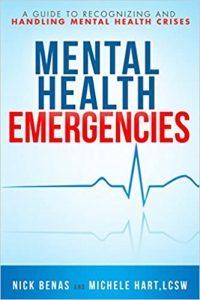
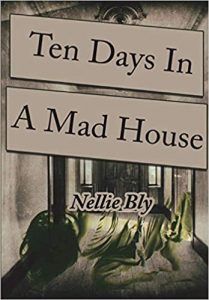
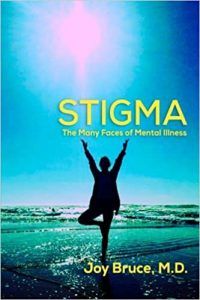
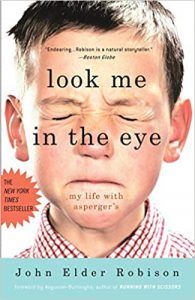
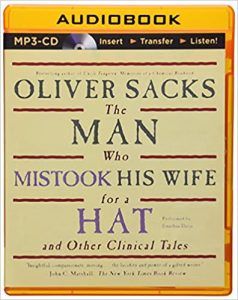
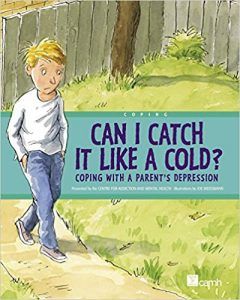
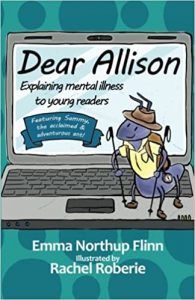
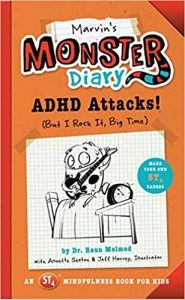
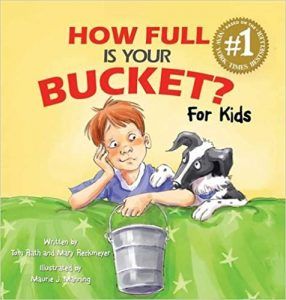
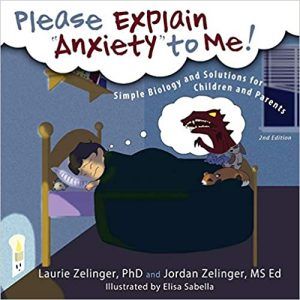


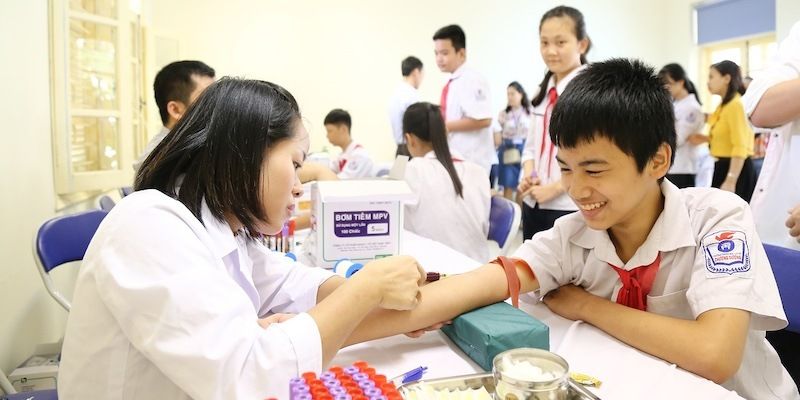


What our readers think
Hi , I am a mental health advocate in south Sudan. Do you have project documents to address PTSD for Military personnel returning from frontline?
Hi IFEA,
Sounds like you’re doing important work. Could you please provide a little more information about what specifically you’re looking for? For instance, are you looking for a scale to assess the presence of PTSD symptoms or resources to aid in the treatment of PTSD among returning military personnel? Let me know, and I’ll see if I can’t point you in the right direction.
– Nicole | Community Manager
this was fantastic, it was great reading what people thought and getting new ideas